The online world is moving fast. In the last three decades, our lives have transformed beyond recognition. From days when we were connecting online from old-LAN computers and cell phones, we now find ourselves immersed in an uncontrolled digital revolution, with Artificial Intelligence and the realms of the Metaverse knocking at our screens.
Yet, as our digital world expands, so do its challenges. Beneath the wonders of the online world lies a darker reality, which contains new forms of dangers such as identity theft, data breaches, violence and discrimination. Worst among these harms, child sexual abuse and exploitation is increasing and evolving every year.

Child sexual abuse and exploitation is happening online, often out of our sight, but with real consequences for the children around us. To prevent harm, it is essential to comprehend the workings of the online world and implement measures that safeguard children from online sexual abuse—without resorting to a complete prohibition of internet access or other restrictive measures. It’s about knowing and using a range of methods and tools to both protect and empower children in their digital lives.
With a focus on the tools to prevent child sexual abuse online, ECPAT calls on government officials, tech companies, professionals, and caregivers to unite and activate on this issue. How? The answers lie in becoming aware of the risks and manifestations of child sexual abuse online and learn which tools are available to fight this horrendous crime. It’s a collective responsibility to educate ourselves and act, ensuring children benefit from the internet and are protected from harm.

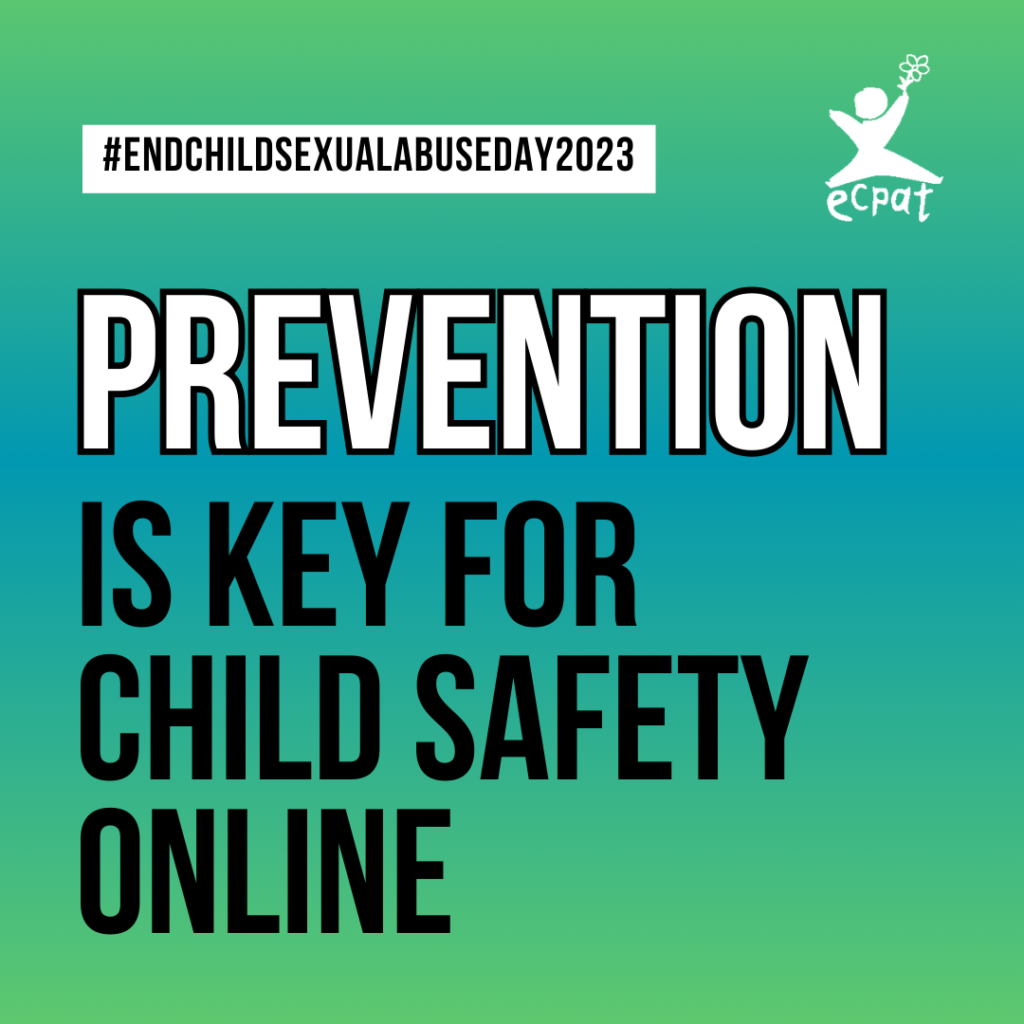
Meet ECPAT Project Beacon – Putting children’s rights into the heart of digital policy
What do the EU citizens really think about data privacy and child protection online?
How far are we to ensure Child Safety Online in the EU? A timeline of events.
Towards online child protection in the EU
Why Does Online Child Protection Matter? Here is ECPAT Project Beacon to explain why
ECPAT welcomes European Commission’s proposal to prevent and combat child sexual abuse
What is ECPAT doing to ensure Child Safety Online in the EU?
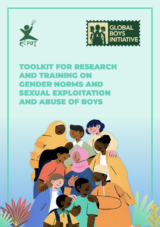
This toolkit is designed for practitioners, researchers, and civil society organisations working with communities on sensitive issues related to gender, masculinities, and the sexual exploitation and abuse of boys. It aims to guide safe, ethical, and meaningful research and engagement, grounded in gender-aware and child-protection principles.
Available in: English, French
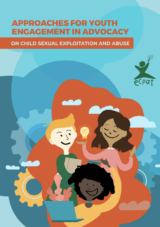
This document has been prepared for staff within facilitating organisations who are supporting children or young people to take an active role in advocacy on child sexual exploitation and abuse to use as a basis for planning participatory advocacy work.
Available in: English
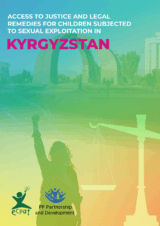
This legal factsheet determines the extent to which Kyrgyz laws provide access to child-centric justice and protection for children who have been subjected to sexual exploitation. It draws on key informant interviews to explore perceptions of the practical realities of children’s access to justice. The findings were presented during a national consultation with stakeholders, who provided feedback and discussed pathways to enhance access to justice and effective remedies for children subjected to sexual exploitation in Kyrgyzstan.
Available in: English
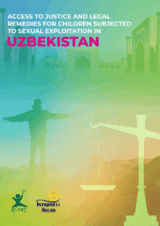
This legal factsheet determines the extent to which Uzbek laws provide access to child-centric justice and protection for children who have been subjected to sexual exploitation. It draws on key informant interviews to explore perceptions of the practical realities of children’s access to justice. The findings were presented during a national consultation with stakeholders, who provided feedback and discussed pathways to enhance access to justice and effective remedies for children subjected to sexual exploitation in Uzbekistan.
Available in: English
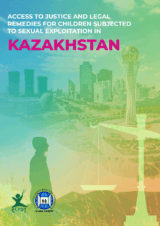
This legal factsheet determines the extent to which Kazakh laws provide access to child-centric justice and protection for children who have been subjected to sexual exploitation. It draws on key informant interviews to explore perceptions of the practical realities of children’s access to justice. The findings were presented during a national consultation with stakeholders, who provided feedback and discussed pathways to enhance access to justice and effective remedies for children subjected to sexual exploitation in Kazakhstan.
Available in: English
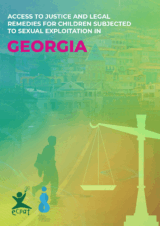
This legal factsheet determines the extent to which Georgian laws provide access to child-centric justice and protection for children who have been subjected to sexual exploitation. It draws on key informant interviews to explore perceptions of the practical realities of children’s access to justice. The findings were presented during a national consultation with stakeholders, who provided feedback and discussed pathways to enhance access to justice and effective remedies for children subjected to sexual exploitation in Georgia.
Available in: English, Georgian